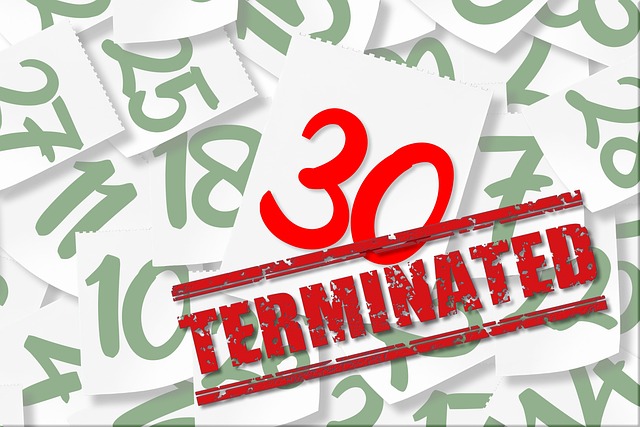Oregon has a robust system for enforcing support payments, prioritizing children's financial well-being. The state's Oregon support enforcement agency uses methods like income withholding and wage garnishment to ensure timely payments from non-custodial parents. This process starts with court-ordered support amounts and includes legal mechanisms for arrears. Both parents have rights and responsibilities, and understanding their duties is crucial. Challenges include complex processes and non-compliance, but Oregon addresses these through education, automated systems, and improved communication. Effective legal support enforcement ensures compliance, guaranteeing children receive the financial support they need.
Oregon’s child support enforcement system plays a crucial role in ensuring financial stability for children after a divorce or separation. This article guides parents through the intricacies of Oregon’s laws and processes related to child support, focusing on enforcing support payments effectively. We’ll explore your rights and responsibilities, common challenges, and legal steps to navigate the support payment process successfully. Understanding these aspects is vital for both parents to ensure their children receive the financial support they deserve.
- Understanding Oregon's Child Support Enforcement Laws
- The Process of Enforcing Support Payments in Oregon
- Your Rights and Responsibilities as a Parent
- Common Challenges and Solutions in Oregon Support Enforcement
- Legal Steps to Ensure Effective Child Support Collection
Understanding Oregon's Child Support Enforcement Laws

Oregon has established a robust child support enforcement system to ensure that non-custodial parents fulfill their financial obligations towards their children’s well-being. The state’s laws aim to protect the rights and interests of both parents and the child, ensuring regular and consistent support payments. Understanding these laws is crucial for all involved parties when navigating the support payment process.
The Oregon child support enforcement agency plays a pivotal role in administering and enforcing these laws. They utilize various methods, including income withholding, direct debit, and wage garnishment, to ensure that support payments are collected and distributed promptly. Legal support enforcement mechanisms are set in place to safeguard the rights of children and parents, fostering a sense of accountability and fairness throughout the entire process.
The Process of Enforcing Support Payments in Oregon

In Oregon, enforcing support payments is a structured process designed to ensure financial obligations for children’s well-being are met. It begins with a court order establishing the amount and terms of support, which serves as a legal framework for subsequent enforcement actions. The Oregon Department of Social and Human Services (DSHS) plays a pivotal role in this process, managing cases and utilizing various tools to ensure compliance. These include wage garnishments, where employers deduct specified amounts from an obligor’s earnings, and intercepting tax returns or other benefits.
When support payments fall into arrears, legal support enforcement mechanisms kick in. This may involve license suspensions for drivers, passport seizures, or even jail time for willful non-compliance. The DSHS also facilitates case management, offering services like locates (tracking down obligors) and direct payment processing. Oregon’s support enforcement system is geared towards promoting the financial stability of children while holding parents accountable for their responsibilities.
Your Rights and Responsibilities as a Parent

As a parent in Oregon, you have rights and responsibilities regarding child support payments. It’s crucial to understand that enforcing support payments is a legal process aimed at ensuring children receive financial support from both parents. The Oregon support enforcement system is designed to facilitate this, working with custodial parents to collect unpaid support and use those funds for the child’s needs.
Your responsibilities include paying the ordered amount on time and adhering to the terms set by the court. Failure to do so may result in legal consequences, such as wage garnishments, tax refunds being held, or even license suspensions. At the same time, you have the right to dispute support orders if you believe they are unfair or inaccurate, ensuring a fair and just support payment process.
Common Challenges and Solutions in Oregon Support Enforcement

Oregon’s child support enforcement system faces several common challenges that impact its effectiveness in ensuring parents fulfill their financial obligations. One significant hurdle is the complex nature of the support payment process, which can lead to misunderstandings and non-compliance. Many parents struggle to navigate the legal aspects of enforce support payments, especially when it involves shared custody arrangements or varying income levels. To address this, Oregon offers numerous resources and support services designed to educate parents on their responsibilities and rights, as well as provide assistance in establishing fair and manageable payment plans.
Another challenge lies in the gap between the state’s efforts to enforce support payments legally and the actual collection rates. Despite proactive measures by legal support enforcement agencies, some non-custodial parents face difficulties in meeting their financial duties due to job instability or unexpected life circumstances. To overcome this, Oregon has implemented various strategies, including automated payment systems and regular communication with parents to keep them informed about their obligations. These efforts aim to streamline the process, enhance transparency, and ultimately improve compliance, ensuring that children receive the financial support they deserve.
Legal Steps to Ensure Effective Child Support Collection

Enforcing support payments is a critical aspect of Oregon child support enforcement. The state has established procedures and laws to ensure that non-custodial parents fulfill their financial obligations towards their children’s well-being. Legal steps involve several key processes, such as filing a motion with the court to establish or modify support orders, serving legal notices to inform the non-paying parent, and potentially employing the services of an attorney specializing in family law and child support.
Oregon support enforcement agencies play a vital role in facilitating the support payment process. They investigate cases, locate non-paying parents, and facilitate collection through various means, including wage garnishments, bank account levies, and driver’s license suspensions. These measures are designed to encourage timely and full compliance with support orders, ensuring children receive the financial support they need for their health, education, and overall well-being.






